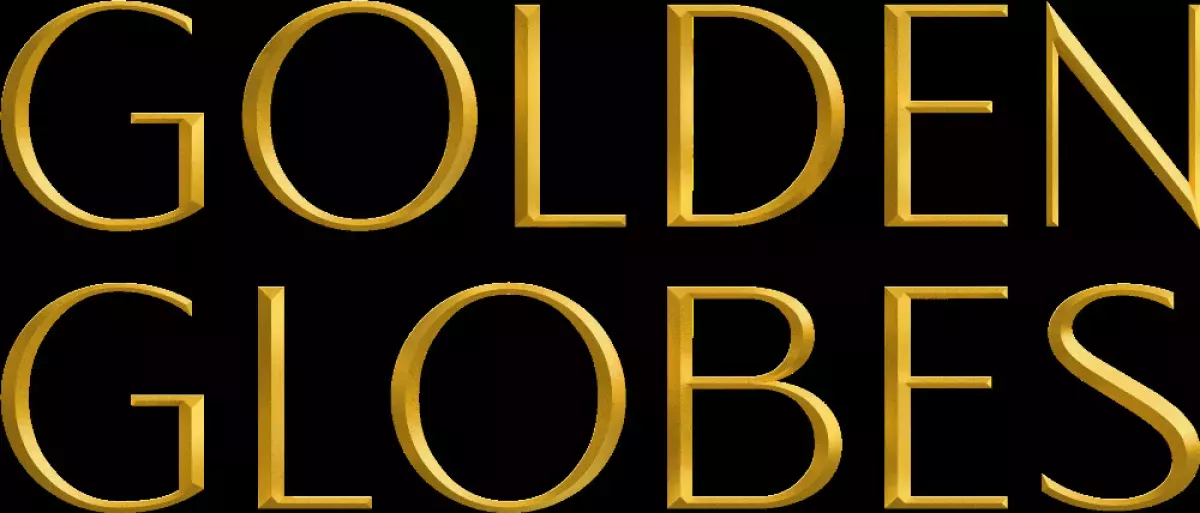The Golden Globe Awards are annual accolades recognizing excellence in film and television, both domestic and international. Established in 1944, the ceremony traditionally occurs each January, marking a key event in the lead-up to the Academy Awards. The eligibility period for nominations spans from January 1st to December 31st. There were no Golden Globe Award ceremonies televised in 1969–1972, 1979, and 2022. The 2008 ceremony was also canceled due to the Writers Guild of America strike.
1943: Formation of the Hollywood Foreign Correspondent Association
In 1943, Los Angeles-based foreign journalists founded the Hollywood Foreign Correspondent Association (HFCA), later known as the Hollywood Foreign Press Association (HFPA), to improve the process of gathering and distributing cinema news to non-U.S. markets and to establish an awards ceremony similar to the Academy Awards.
January 1944: The first Golden Globe Awards ceremony
In January 1944, the 1st Golden Globe Awards ceremony was held to honor the best achievements in filmmaking for the year 1943. The ceremony took place at the 20th Century-Fox studios.
1944: The first Golden Globe Awards ceremony
In January 1944, the 1st Golden Globe Awards ceremony was held to honor the best achievements in filmmaking for the year 1943. The ceremony took place at the 20th Century-Fox studios.
1950: Formation of the Foreign Press Association of Hollywood
In 1950, some journalists broke away from the HFCA to form the Foreign Press Association of Hollywood (FPAH).
1950: Establishment of the Cecil B. DeMille Award
In 1950, the HFCA established a special honorary award to recognize outstanding contributions to the entertainment industry, with the first award presented to Cecil B. DeMille, after whom the award was named.
January 27, 1951: First World Film Favorite Festival
On January 27, 1951, the FPAH held its first World Film Favorite Festival, awarding Henrietta Awards in various categories to Gregory Peck and Jane Wyman. The award, named for Henry Gris, featured an angel above a globe.
January 26, 1952: Second World Film Favorite Festival
On January 26, 1952, at the FPAH's second World Film Favorite Festival, Alan Ladd and Esther Williams received gold Henriettas for World Favorites based on an international poll. Silver Henriettas for "Best Young Box Office Personality" were presented to Leslie Caron, Tony Curtis, John Derek, Mitzi Gaynor, Marilyn Monroe, and Patrice Wymore.
February 14, 1953: Third World Film Favorite Festival
On February 14, 1953, the third festival was held and John Wayne and Susan Hayward won the gold Henriettas.
January 1954: Joint Ceremony held by two organizations
In January 1954, the Hollywood Foreign Correspondent Association and the Foreign Press Association of Hollywood held a joint awards ceremony.
1955: Merger to form the Hollywood Foreign Press Association
In 1955, the FPAH and HFCA merged to form the Hollywood Foreign Press Association.
February 1956: First Golden Globe in Television Achievement
In February 1956, the 13th Golden Globe Awards saw the introduction of the first Golden Globe in Television Achievement.
1958: NBC begins televising the Golden Globes locally
In 1958, NBC began televising the Golden Globes ceremony locally in Los Angeles.
1958: Henry Gris resigns from HFPA board
In 1958, former HFPA president Henry Gris resigned from the board claiming that "certain awards are being given more or less as favors" with others querying why so many winners were represented by one public relations firm.
March 1962: Debut of permanent television award categories
In March 1962, at the 19th Golden Globe Awards, the first three permanent television award categories were introduced: Best TV Series, Best TV Actor, and Best TV Actress.
1963: Introduction of Miss Golden Globe
In 1963, the practice of having one or more persons, traditionally the daughters or sons of celebrities, referred to as "Miss Golden Globe", to hand out the trophies commenced.
1964: NBC begins nationally televising the Golden Globes
In 1964, NBC began nationally televising the Golden Globes ceremony.
February 1968: FCC imposed a ban on NBC's broadcast of the Golden Globes
In February 1968, the FCC imposed a ban on NBC's broadcast of the Golden Globes after the ceremony.
1968: FCC claims the show misled the public
In 1968, the Federal Communications Commission claimed the show "misled the public as to how the winners were determined".
1974: Ban on NBC's broadcast of the Golden Globes lifted.
In 1974, the ban on NBC's broadcast of the Golden Globes, which had been in place since February 1968, was lifted.
1978: Establishment of the Young Artist Foundation
In 1978, Maureen Dragone, a member of the Hollywood Foreign Press, established the Young Artist Foundation, which annually presents the Young Artist Awards to recognize young Hollywood performers.
1979: Henrietta Award given for the movie year
The Henrietta Award was given through 1980 for the 1979 movie year.
1980: Termination of the Henrietta Award
In 1980, the Henrietta Award, previously given out by the Hollywood Foreign Press Association, was terminated.
1982: NBC terminates contract with the HFPA after the Pia Zadora scandal.
After the ban, NBC once again broadcast the awards ceremony, but it terminated its contract with the HFPA after the Pia Zadora scandal of 1982.
1982: Pia Zadora wins Golden Globe, sparking controversy
In 1982, Pia Zadora won a Golden Globe for "New Star of the Year in a Motion Picture" for her role in "Butterfly", leading to accusations that HFPA members had been bought off by her husband, Meshulam Riklis.
1993: Dick Clark Productions begins producing the Golden Globes
In 1993, Dick Clark Productions (DCP) began producing the Golden Globes ceremony with NBC as a broadcaster, at a time of instability for the awards.
2001: HFPA approves extension in 2001 without formal vote
In 2001, the HFPA disregarded its own bylaws by approving an extension without a formal vote, exemplifying their enthusiasm and desire to "not get cancelled".
2009: Redesign of the Golden Globe statuette
In 2009, the Golden Globe statuette was redesigned in collaboration with Society Awards, enhancing its quality and gold content. The new statuette was unveiled at a press conference prior to the show.
2010: Dick Clark Productions extends deal with NBC, HFPA sues
In 2010, Dick Clark Productions (DCP) extended its deal with NBC through 2018 without the HFPA's knowledge, leading the HFPA to sue DCP over the deal and claims that DCP was attempting to sell digital rights they did not hold.
2010: Ricky Gervais hosts the Golden Globe Awards
In 2010, Ricky Gervais hosted the Golden Globe Awards. Until 2010, the award ceremony was one of two major Hollywood award ceremonies (the other being the Screen Actors Guild Awards) that did not have a regular host. Since 2010, the award ceremony was televised live in all United States time zones.
2010: Allegations of ethical concerns and payola against HFPA.
In 2011, publicist Michael Russell filed a $2 million lawsuit alleging that HFPA President Philip Berk terminated his contract after the 2010 broadcast because Russell raised ethical concerns over payola, including allegations of bribes for nominations and awards.
2011: Lawsuit filed against HFPA alleging ethical concerns and payola
In 2011, publicist Michael Russell filed a $2 million lawsuit alleging that HFPA President Philip Berk terminated his contract after the 2010 broadcast because Russell raised ethical concerns over payola, including allegations of bribes for nominations and awards.
2011: Skepticism over nomination of The Tourist
In 2011, the nomination of "The Tourist" for Best Musical/Comedy at the Golden Globes drew skepticism, with rumors of Sony influencing voters with a trip to Las Vegas and a Cher concert. It was also reported that Angelina Jolie lobbied HFPA members.
April 2012: Judge rules in favor of Dick Clark Productions in lawsuit with HFPA
In April 2012, Judge Howard Matz ruled in favor of Dick Clark Productions (DCP) in a lawsuit with the Hollywood Foreign Press Association (HFPA), upholding the NBC perpetuity clause. The judge cited the HFPA's "unbusinesslike display[s] of misplaced priorities" and susceptibility to "bouts of pronounced turmoil and personal feuds."
2012: Debut of the Golden Globe Awards theme song
In 2012, the Golden Globe Awards' theme song, written by Japanese musician Yoshiki Hayashi, debuted.
2013: Tina Fey and Amy Poehler host the Golden Globe Awards
In 2013, Tina Fey and Amy Poehler began hosting the Golden Globe Awards.
2014: Dick Clark Productions and HFPA reach a settlement in 2014.
In 2014, Dick Clark Productions (DCP) and the HFPA reached a settlement, committing DCP to continue as producer through the end of its contract with NBC and to collaborate on expanding the brand.
2015: Tina Fey and Amy Poehler host Golden Globe Awards
In 2015, Tina Fey and Amy Poehler hosted Golden Globe Awards.
2017: Golden Globes TV ratings decline.
Between 2017 and 2018, the Golden Globes' television ratings dropped 11%.
January 5, 2018: Rename Miss Golden Globe to Golden Globe Ambassador
On January 5, 2018, the title of "Miss Golden Globe" was renamed to "Golden Globe Ambassador".
September 2018: NBC renews rights to Golden Globes through 2027
In September 2018, NBC agreed to renew its rights to the Golden Globes through 2027, maintaining the existing broadcast arrangement and Dick Clark Productions' involvement.
2018: Golden Globes TV ratings decline.
Between 2017 and 2018, the Golden Globes' television ratings dropped 11%.
2018: Dick Clark Productions deal extended with NBC until 2018.
In 2010 Dick Clark Productions reached an extension with NBC through 2018. In April 2012, the judge ruled in favor of Dick Clark Productions in a lawsuit with the HFPA, upholding the NBC perpetuity clause.
2019: NBC televises NFL playoff game as lead-in to the Golden Globes.
In 2019, NBC televised a late Sunday afternoon National Football League (NFL) playoff game as a lead-in to the Golden Globes to boost television ratings.
2019: Creation of the Carol Burnett Award
In 2019, the Carol Burnett Award was created as a television counterpart to the Cecil B. DeMille Award, with Carol Burnett as the first recipient.
2020: NBC televises NFL playoff game as lead-in to the Golden Globes.
In 2020, NBC televised a late Sunday afternoon National Football League (NFL) playoff game as a lead-in to the Golden Globes to boost television ratings.
2020: Criticism over nomination categories of Asian and Asian American films
In 2020, the HFPA faced criticism for nominating Asian and Asian American films like "The Farewell", "Parasite", and "Minari" for Best Foreign Language Film but excluding them from the Best Motion Picture categories, leading to accusations of anti-Asian racism.
May 3, 2021: HFPA announces reform plans
On May 3, 2021, the HFPA announced plans for a reform package, including increasing membership by 50% over 18 months and implementing new practices to improve accountability, following criticism for the lack of Black representation among its members.
May 7, 2021: Amazon and Netflix suspend activities with HFPA
On May 7, 2021, both Amazon Studios and Netflix announced they would suspend their activities with the HFPA until sufficient actions on reforms were made.
2021: 2021 Golden Globe ceremony postponed.
The 2021 Golden Globe ceremony was postponed to February 28, 2021, due to the impact of the COVID-19 pandemic on cinema and television.
January 9, 2022: 79th Golden Globe Awards conducted as private presentation
On January 9, 2022, the 79th Golden Globe Awards ceremony was conducted as a non-televised, private presentation with limited guests and strict COVID-19 protocols due to the Omicron variant.
January 2022: Criticism of HFPA reform plans
In January 2022, Time's Up and a group of 100 PR firms criticized the HFPA reform package for lacking specifics and timelines, arguing it would not impact the upcoming 79th Golden Globe Awards cycle.
July 2022: HFPA approves restructuring
In July 2022, the HFPA approved a major restructuring, where Todd Boehly would establish a for-profit entity via Eldridge Industries to hold the Golden Globe Awards' intellectual property and oversee the modernization of the ceremony.
2022: NBC declines to air 2022 Golden Globe ceremony
Due to a boycott, NBC declined to air the 2022 Golden Globe ceremony.
January 10, 2023: NBC airs the 80th Golden Globe Awards
On January 10, 2023, NBC aired the 80th Golden Globe Awards, which was moved to a Tuesday evening to avoid conflicts with the National Football League and the College Football Playoff National Championship.
June 12, 2023: Dick Clark Productions acquires Golden Globes
On June 12, 2023, Dick Clark Productions acquired ownership and operational control of the Golden Globe Awards after purchasing them from the Hollywood Foreign Press Association.
November 2023: DCP announces agreement to air 81st ceremony on CBS and Paramount+
In November 2023, Dick Clark Productions (DCP) announced a one-year agreement to air the 81st Golden Globe ceremony on CBS and streaming on Paramount+, following CBS's NFL coverage.
2023: Removal of Exclusive Press Conference Requirement
As of the 2023 ceremony, the HFPA removed the requirement that an exclusive press conference be hosted by the organization for each nominated film, a practice that had contributed to transparency issues.
2023: Possibility of NBC televising Golden Globe Awards
In 2023, NBC indicated they would be open to televising the Golden Globe Awards if the HFPA was successful in its reform efforts.
March 2024: DCP announces five-year agreement with CBS to air Golden Globes
In March 2024, Dick Clark Productions (DCP) announced a five-year agreement with CBS to continue airing the Golden Globes. The agreement includes rights to the DCP-produced American Music Awards beginning in 2025.
2024: Voting body composition for the 2024 ceremony
As of the 2024 ceremony, the voting body consisted of 310 individuals, including representatives of 76 countries, international journalists, and 95 members that were members of the HFPA.
2025: American Music Awards to be included in DCP and CBS agreement in 2025
In March 2024, Dick Clark Productions (DCP) announced a five-year agreement with CBS to continue airing the Golden Globes. The agreement includes rights to the DCP-produced American Music Awards beginning in 2025, which had gone on hiatus after 2022 when its contract with ABC expired.
2027: NBC renews rights to Golden Globes through 2027
In September 2018, NBC agreed to renew its rights to the Golden Globes through 2027, maintaining the existing broadcast arrangement and the involvement of Dick Clark Productions.
Mentioned in this timeline
CBS Broadcasting Inc CBS is a prominent American commercial broadcast...

Sony is a Japanese multinational conglomerate based in Tokyo Its...
The National Broadcasting Company NBC is a major American commercial...

Los Angeles is the most populous city in California and...

Ricky Dene Gervais is an English comedian actor writer producer...
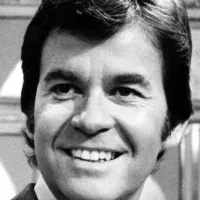
Dick Clark was a prominent American television and radio personality...
Trending

1 minute ago Shia LaBeouf Spotted at New Orleans' Mardi Gras Bar Crawl, Draws Mixed Reactions.
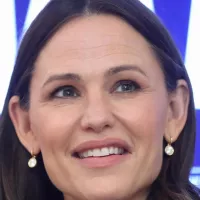
1 minute ago Jennifer Garner Promotes 'The Last Thing He Told Me' in Stunning Black Dress.

2 minutes ago Rose Byrne Wins Spirit Award and Stuns in Bold Dress at Film Awards.
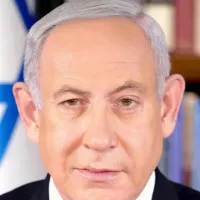
2 minutes ago Netanyahu pushes for dismantling Iran's nuclear program amid US-Israel strategy differences.
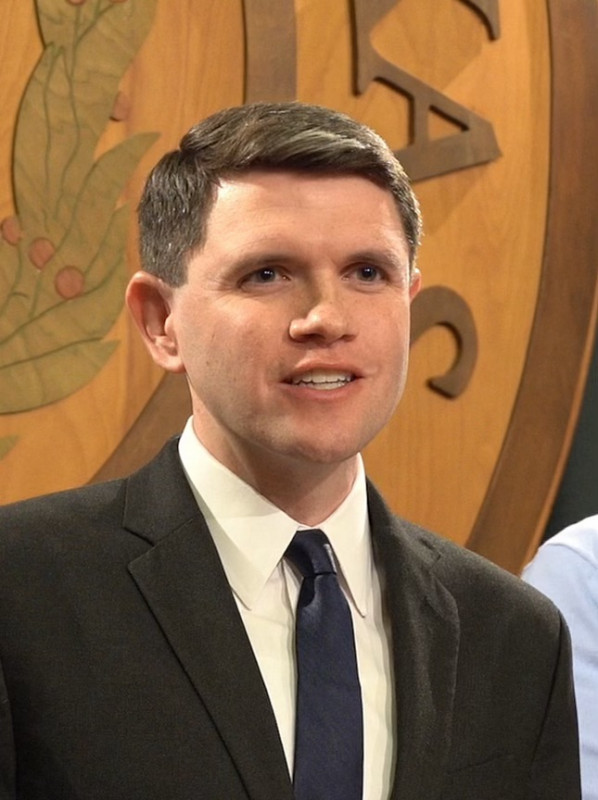
2 minutes ago Crockett and Talarico clash in Texas Senate race amid unity concerns.

2 hours ago Kevin Nash's critique of Je'Von Evans sparks controversy, labeled as racially insensitive by many.
Popular
Randall Adam Fine is an American politician a Republican who...

Pam Bondi is an American attorney lobbyist and politician currently...

Kid Rock born Robert James Ritchie is an American musician...

Barack Obama the th U S President - was the...
The Winter Olympic Games a major international multi-sport event held...

XXXTentacion born Jahseh Dwayne Ricardo Onfroy was a controversial yet...
